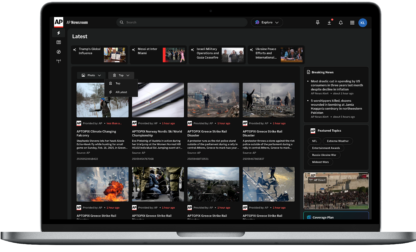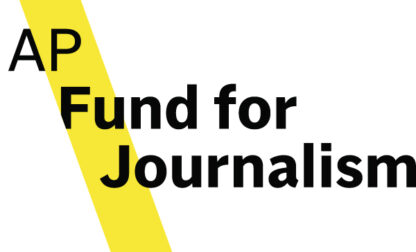The Associated Press has compiled a list of U.S. political terms, phrases and definitions to assist in coverage of the 2014 midterm elections. Election terminology, writing with context and cliches to avoid are included. Terms and definitions are from the AP Stylebook or based on common usage in AP news reports.
CONGRESS
At stake are all 435 House of Representatives seats from 50 states, currently with a 234-201 Republican majority. Nonvoting delegates from the District of Columbia and U.S. territories will also be elected.
In the 100-member Senate, 36 seats are being contested. Democrats currently hold a 53-45 majority. There are two independents.
By gaining six seats in the Senate and holding their majority in the House, Republicans would control both houses of Congress in the final two years of Democratic President Barrack Obama’s term. In the Senate, 60 votes are generally needed to block legislation delaying actions, or filibusters, and 67 votes are needed to override a presidential veto.
Congress, congressional
Capitalize when referring the U.S. Senate and House of Representatives together. The adjective is lowercase unless part of a formal name.
congressman, congresswoman
Not formal titles and spelled lowercase, except as a term of address in a direct quotation. Rep. is the preferred title before the name of a U.S. House member; Sen. is used before the name of a Senate member.
majority leader, minority leader
Capitalize as formal legislative title before a name: House Majority Leader Kevin McCarthy. Standing alone or following the name, it’s lowercase.
political affiliation
The party of a candidate or officeholder is essential in any election or issue story, along with the state: Republican Sen. Tim Scott of South Carolina; Sen. Tim Scott, R-S.C.
GOVERNORS
Among 36 races for governor, Republicans are defending governorships in Florida, Iowa, Wisconsin and Ohio and trying to defeat a Democratic incumbent in Colorado. The outcomes could provide a trend for the 2016 presidential election because these five states account for 72 electoral votes, or more than a quarter of the total needed to win the White House.
Other key races include Pennsylvania, where a Democratic businessman is running to unseat Republican Gov. Tom Corbett, and Georgia, where Democratic challenger Jason Carter, the grandson of former President Jimmy Carter, faces Gov. Nathan Deal, a Republican.
ELECTION TERMINOLOGY
battleground states
States where candidates from both major political parties have a reasonable chance for victory in a statewide race or presidential vote.
conservative
Lowercase for a political philosophy, capitalize in a formal name: the Conservative Party.
Democrat, Democratic Party
Both are capitalized. Don’t use Democrat Party.
Election Day, election night
The first is capitalized, the second is lowercase for voting Tuesday, Nov. 4.
fall-off voters
Those who sit home in nonpresidential years.
fundraiser, fundraising
Single words in all uses.
front-runner
Candidate who leads a political race; the term is hyphenated.
leftist, ultra-leftist
Avoid these terms in favor of more precise descriptions of political leanings.
liberal, liberalism
Lowercase for a political philosophy, capitalize in a formal name: the Liberal Party.
libertarian
Lowercase for a political philosophy, capitalize in a formal name: the Libertarian Party.
majority, plurality
A majority is more than half the votes cast; a plurality is the largest number of votes, but less than a majority.
middle class (n.), middle-class (adj.)
opinion polls and surveys
Consult the detailed entry in the AP Stylebook — print and online — on how to use results of public opinion surveys and avoid exaggerating the meaning.
PAC, super PAC
Political action committees raise money for candidates or parties from donations by individuals, but not businesses or labor unions. A super PAC may raise and spend unlimited amounts of money, including from corporations and unions, to support candidates for federal office but must operate independently.
policymaker, policymaking
Both are compounds.
populist
Supports the rights and power of the common people; advocates unorthodox solutions; often critical of establishment politicians and political parties.
re-elect, re-election
Both are hyphenated.
Republican, Republican Party
Both terms are capitalized. GOP (Grand Old Party) may also be used.
rightist, ultra-rightist
Avoid these terms in favor of more precise descriptions of political leanings.
tea party
Lowercase the populist movement that opposes the Washington political establishment. Adherents are tea partyers. Formally named groups in the movement are capitalized: Tea Party Express.
CLICHES AND ALTERNATIVES
red state
Republican-leaning
blue state
Democratic-leaning
horse race
A closely contested political contest.
messaging
The candidate’s pitch to voters.
war lingo
Use criticized instead of attacked, or choose a better verb to describe what the candidate is doing, i.e., challenging, doubting, etc. Also avoidable: launch an assault, take aim, open fire, bombard.
war chest, coffers
Use campaign bank account or stockpile of money.
white paper
A document of policy positions distributed by a campaign.
Contact
Paul Colford
Director of Media Relations
The Associated Press
212-621-1895
[email protected]
Erin Madigan White
Senior Media Relations Manager
The Associated Press
212-621-7005
[email protected]



